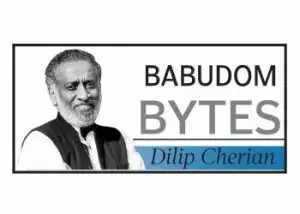 West Bengal's Selection Committee for DGP: A Political Statement
West Bengal's Selection Committee for DGP: A Political Statement

The recent decision by West Bengal to establish its own selection committee for appointing the Director General of Police (DGP) signifies more than a mere administrative adjustment; it represents a strategic political maneuver.
By bypassing the Centre's approval and the UPSC shortlist, West Bengal aligns itself with Punjab and Uttar Pradesh, asserting that states have the authority to select their police leaders independently of Delhi. This coalition spans three states with differing political affiliations — AAP, BJP, and TMC — all echoing a surprisingly unified federalist sentiment.
This shift did not occur suddenly. West Bengal has been operating with an acting DGP for several months, and with minimal progress from Delhi, the Mamata Banerjee administration has opted to take control. The new selection process will likely be led by a state-formed committee, including the Chief Secretary and Home Secretary.
However, this action may conflict with the 2006 Supreme Court ruling in Prakash Singh vs. Union of India, which aimed to shield police appointments from political influence by involving the UPSC. States now contend that the interference is originating from Delhi, rather than internally.
Is this the dawn of genuine cooperative federalism, or are we witnessing a gradual escalation of Centre-state conflicts? Regardless, it serves as a compelling case study in state autonomy and may redefine the balance of power between the central government and state administrations.
This situation transcends the appointment of a DGP; it raises critical questions about authority and resistance.
Babu drama: same script, new government
A longstanding conflict is resurfacing within Delhi's bureaucratic circles, and this time, it feels personal.
The mounting dissatisfaction among Delhi Administrative Subordinate Services (DASS) officers has reached a boiling point. They have escalated their grievances to the Union Home Secretary, seeking resolution on 217 long-awaited positions that were approved by the Delhi High Court last year.
On the other hand, the Delhi, Andaman and Nicobar Islands Civil Services (DANICS) have contested this decision in the Central Administrative Tribunal, asserting that these positions rightfully belong to them. This dispute has once again highlighted the hierarchy within the administrative framework.
Sources indicate that DASS officers, who have managed Delhi's administration since 1967, are growing weary. Over fifty years of stagnation can take a toll. With no restructuring, promotions, or clear career paths, approximately 100 officers reportedly leave each year, not out of choice, but due to professional disillusionment.
This issue extends beyond mere positions; it encompasses dignity, career advancement, and a system that appears indifferent to its foundational workforce.
The blame game is in full swing, with DASS accusing certain DANICS officers of intentional delays, from obstructing service rules to hindering post notifications.
With a new government in place and the matter now at North Block, this internal conflict is finally gaining national attention. It should be manageable for a government that prides itself on being a 'double engine' administration.
Cadre chaos
More than ten years after the bifurcation of Andhra Pradesh and Telangana, the Centre still struggles to separate the IAS and IPS cadres without turning it into a farcical situation. Officers like Siva Sankar Lotheti have become emblematic of this bureaucratic limbo, caught between states due to conflicting Central Administrative Tribunal orders and an indecisive Department of Personnel and Training.
Recently, the Central Administrative Tribunal overturned the Centre's decision to transfer Lotheti to Telangana, ordering his return to Andhra. Yet, weeks have passed without any action. He is not alone; numerous officers find themselves in a game of musical chairs, assigned to one state while officially belonging to another, all while engaging in legal battles.
This predicament is not merely a personnel issue; it highlights a significant governance gap. When bureaucrats are uncertain about their affiliations, how can they effectively serve the public? The courts have attempted to resolve this chaos, but they are working with a flawed allocation policy that was hastily implemented post-bifurcation.
The Centre's indecision exacerbates the situation. Officers cannot plan their careers or lives when subjected to ambiguous directives and frequent revisions. While Telangana and Andhra Pradesh have progressed politically, the bureaucracy remains mired in the past.
A sustainable resolution requires more than just tribunal orders and departmental adjustments. It necessitates a political overhaul that acknowledges officers as individuals rather than mere pawns. Until such changes occur, the repercussions of the bifurcation will persist.